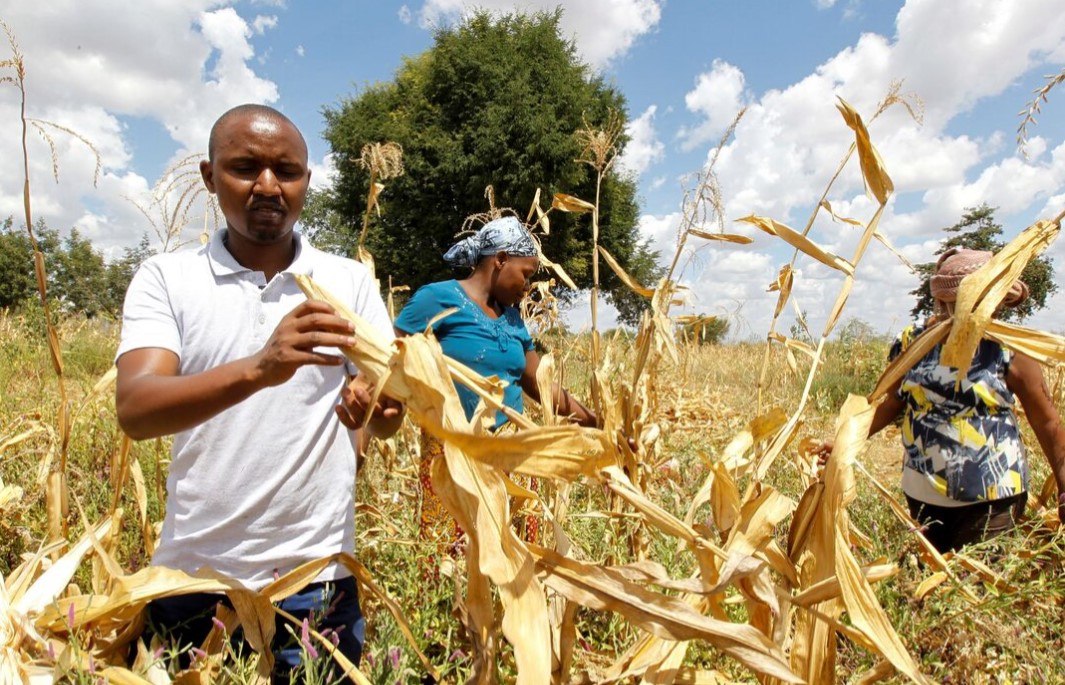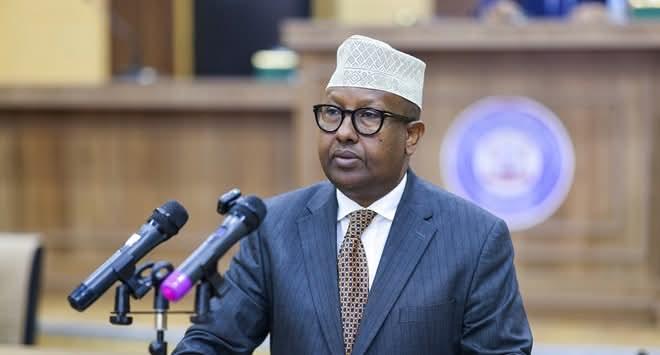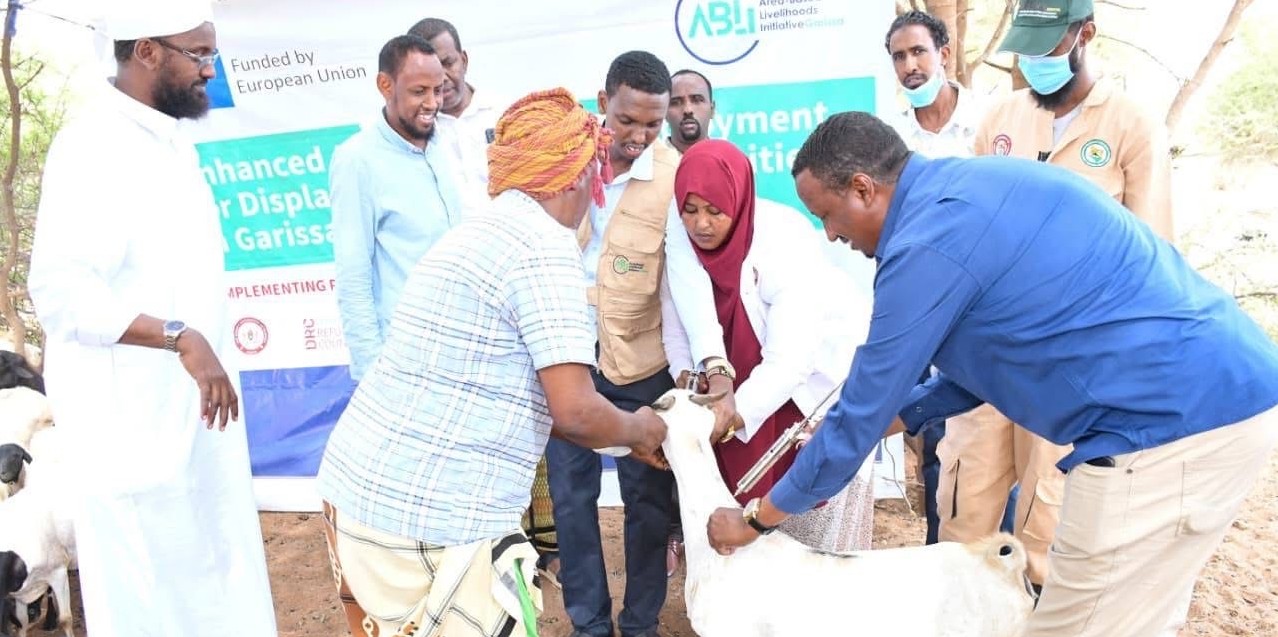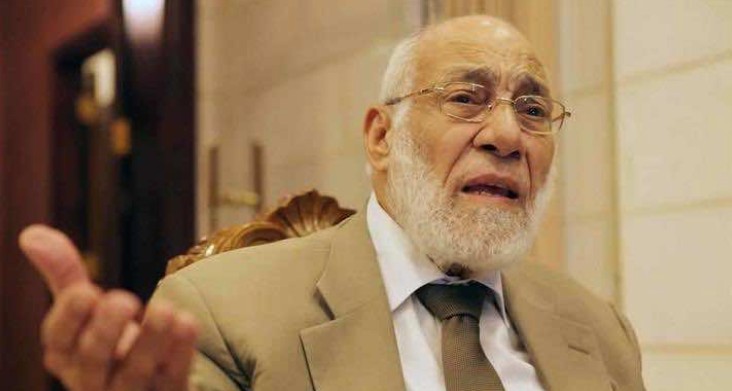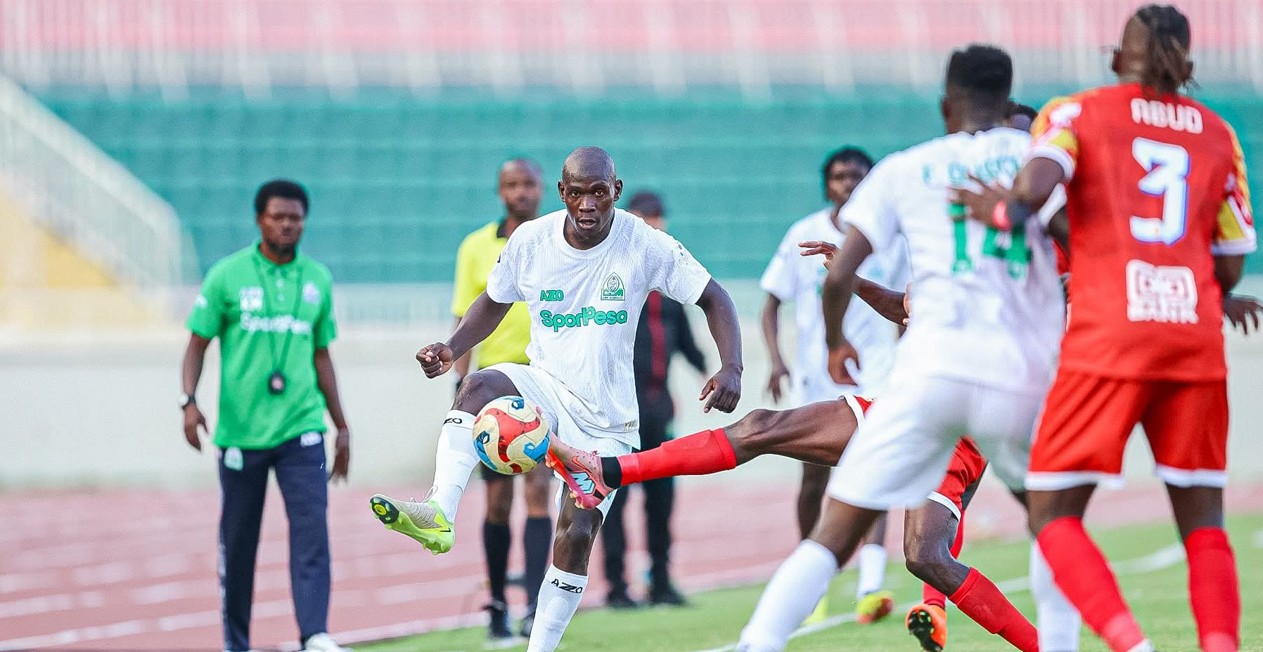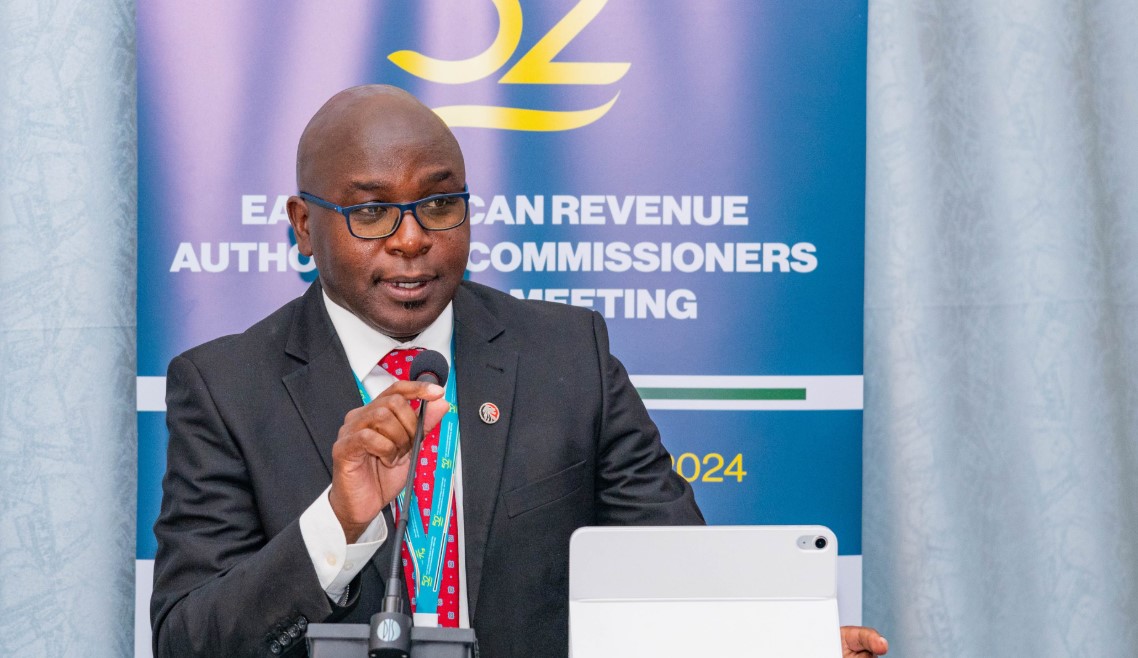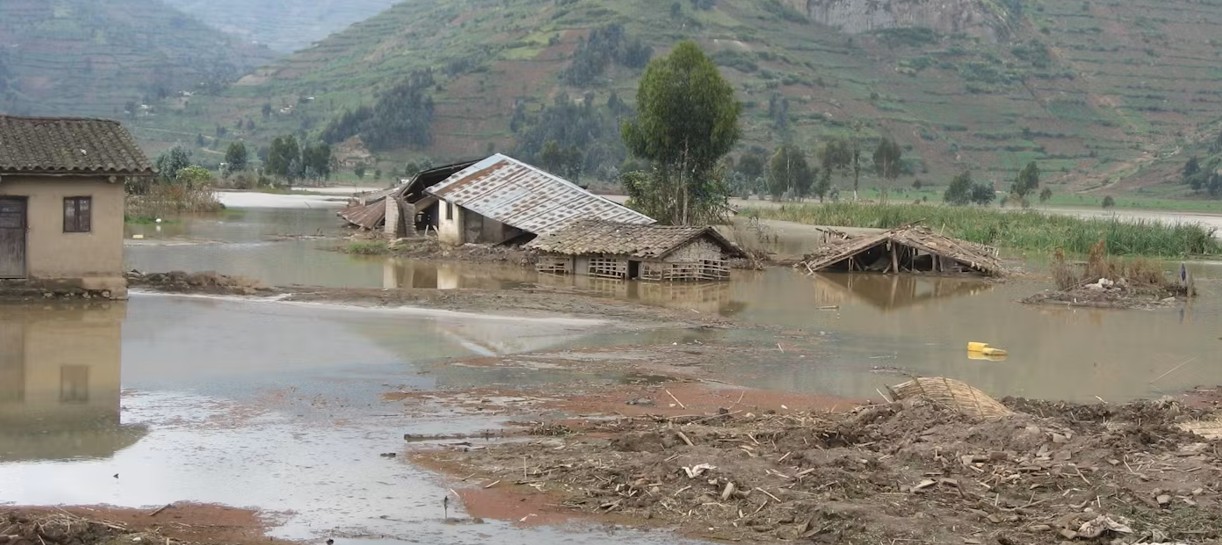Daudi Anami: Bold activist fighting for rights of Mukuru residents
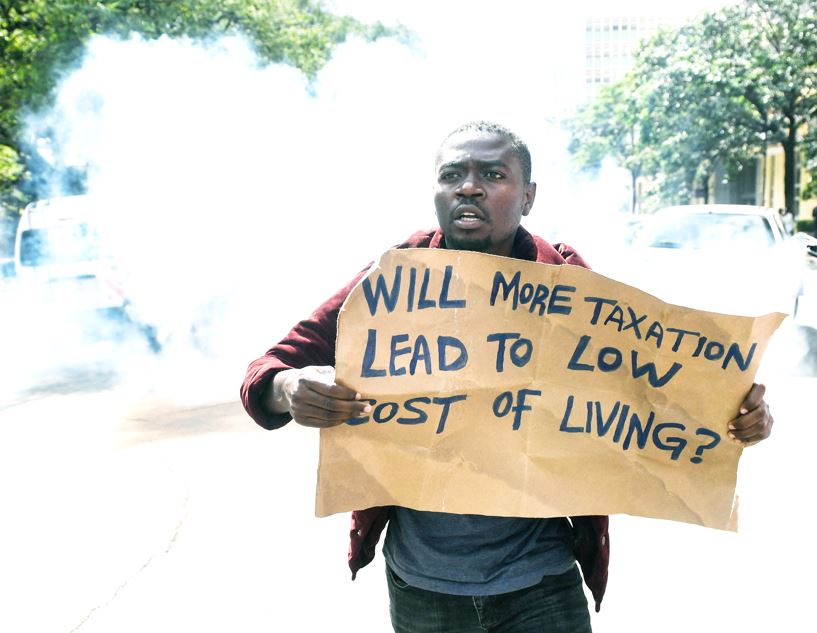
During the recent demolition of houses said to be on riparian land, Daudi and others agitated for a dignified handling of the situation.
At the height of the Covid-19 pandemic in 2021, about 40,000 people from the Mukuru Kwa Njenga slums in Nairobi’s Mathare were made homeless by demolitions meant to give way to the building of a major toll road.
People lost their belongings and dozens of families slept in makeshift tents in the rubble, amid open sewage when it rained. And with no source of income, some went without food for days.
More To Read
- Officials warn of child safety risks near Ngong River in Mukuru
- Mukuru Community Justice Centre: Fighting injustice, police abuse to empower Kenya’s vulnerable
- Gatoto Primary alumni demand return of school to community after court win
- High Court halts Wiper Party asset auction over Sh698,000 debt
- Court declares State takeover of Gatoto School in Mukuru kwa Reuben unconstitutional
- Ruto proposes law to allow housing levy contributors access Sh5 million loans
Daudi Anami Tourneau, a 27-year-old community-based activist, became known for raising his voice against the government’s decision to evict Mukuru residents at a time when both Covid-19 and rains reigned over the city.
Daudi was arrested, threatened, and occasionally assaulted for standing for the rights of the downtrodden in Nairobi’s informal settlements during the evictions.
He believed the roadworks created a humanitarian crisis, as schools, businesses, and 13,000 homes spread across nearly 40 hectares of the Mukuru Kwa Njenga slum were demolished, clearing land for a link to the Nairobi Expressway.
According to Daudi, during the eviction, people vacated their properties peacefully to make way for the development, but there were protests.
“Resistance to the demolition mounted for a couple of days until hundreds of armed police officers came in riot vehicles mounted with water cannons,” Daudi told The Eastleigh Voice.
“I ran to safety. I was lucky. When I came back to look for my belongings I saved my mattress, but everything else had been destroyed or taken by the street boys.”
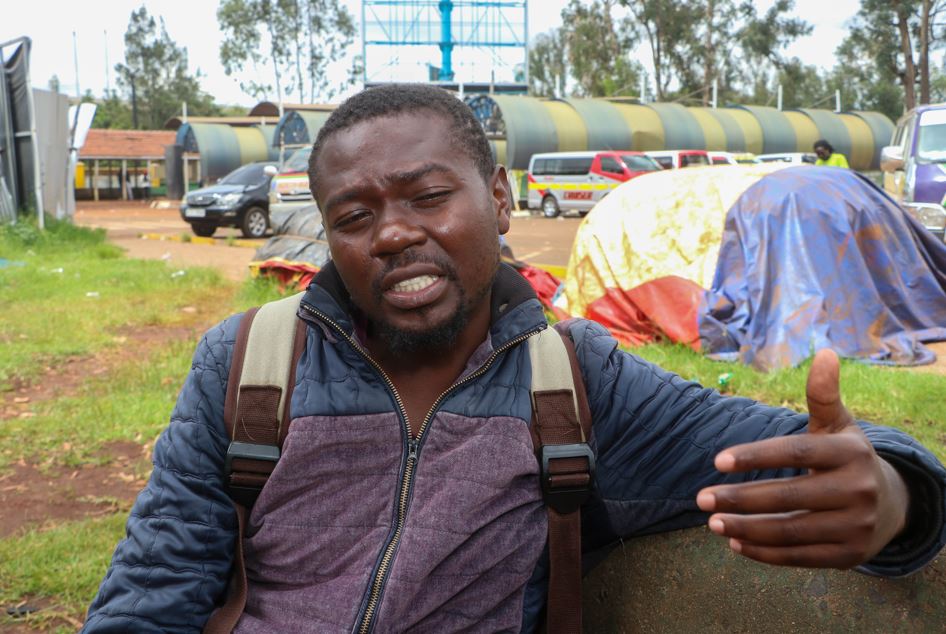 Duadi Anami during an interview with the Eastleigh Voice. (Photo: EV)
Duadi Anami during an interview with the Eastleigh Voice. (Photo: EV)
During the demolitions, Daudi witnessed Mary Bosibori’s husband, Bernard Mogaka, being killed by falling debris as he tried to salvage belongings from his partially demolished house.
A grieving Bosibori and her nine-year-old daughter went to stay with 18 others displaced by the bulldozers in a tiny house. There was not enough room on the floor for people to lie down, so they sat in a row on a sofa, Daudi said.
Daudi was born in Mukuru Kwa Njenga where his mother raised him singlehandedly. His passion for activism grew when he experienced first-hand the injustices in slums. If it was not an enforced disappearance, then it was extra-judicial killing. Police stations were filled with countless cases of sexual abuse, robbery, and assault.
“Growing up in a slum made me bold. You are not sure of living the next day because either a police bullet or cholera brought by poor sanitation might kill you,” said Daudi.
He witnessed many people he knew disappear, not to be seen again. Some were allegedly killed by police officers over unknown crimes while others ended their lives because of the tough economic situation occasioned by joblessness and demands to feed their families.
“It was survival of the fittest. I couldn’t sit down and watch, so I began rallying friends to join me in organising our community into standing up against the excesses of the government and to speak against injustices,” said Daudi.
Mukuru Social Justice Centre
In 2018, Daudi and others formed the Mukuru Social Justice Centre where locals report, document, and share injustices happening in the community. They work collaboratively with similar centres and non-government organisations such as Amnesty International and Transparency International.
Since 2018, Daudi has been a leader of the Muungano Wa Wanavijiji, a coalition of organisations championing the welfare and rights of slum dwellers across the country. He is also a youth mentor, documentation expert, data collector, and photographer.
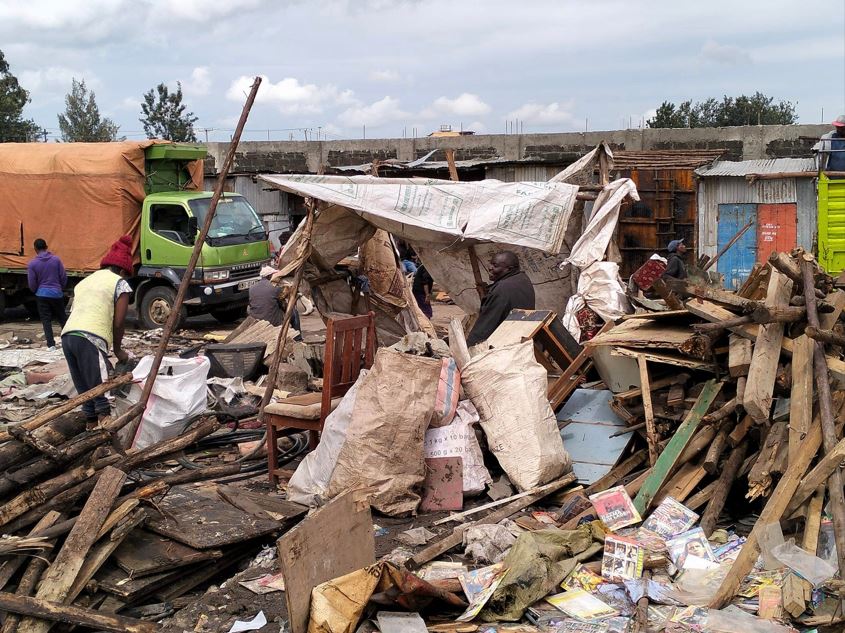 The scene after demolitions in Mukuru kwa Reuben slums in May, 2024. (Photo: Mukuru Community Justice Centre)
The scene after demolitions in Mukuru kwa Reuben slums in May, 2024. (Photo: Mukuru Community Justice Centre)
He has been instrumental in guiding young people to join Muungano Wa Wanavijiji through the Safe and Inclusive Cities project, bringing positive change to different communities.
He is an award-winning human rights defender, having received recognition as the Human Rights Defender of the Year in 2019 and 2020. He is also a YouLead ambassador.
Daudi has been instrumental in profiling the slum settlements in the city. According to him, these settlements are characterized by irregular landscapes, poor and slow infrastructural development, and social and economic challenges. These challenges come as a result of poor governance and lack of proper planning.
“Settlement profiling provides community members with enough information when it comes to identifying community priority needs where the residents can start taking up the responsibility of providing necessary solutions that need immediate interventions such as waste management and livelihood solutions among community members,” said Daudi.
For instance, the settlement profiling in Mathare 4B has over time influenced the formation of Mathare River Adoption Group, a community-based organisation formed in 2023 as a result of the settlement profiling engagements. The group has been steadfast in providing environmental solutions.
Daudi has also witnessed how uncertainty in slums has fuelled gender-based abuses.
“With people sometimes sleeping outside over demolitions and displacement, there is a lot of sexual and gender-based violence that is not being documented.”
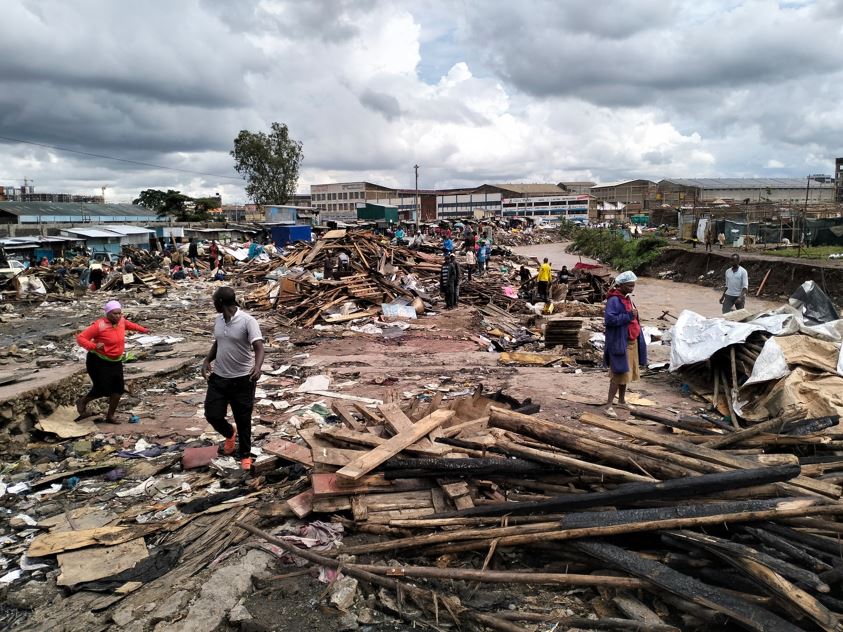 The scene after demolitions in Mukuru kwa Reuben slums in May, 2024. (Photo: Mukuru Community Justice Centre)
The scene after demolitions in Mukuru kwa Reuben slums in May, 2024. (Photo: Mukuru Community Justice Centre)
Daudi’s community centre was demolished, leaving people unable to report crimes or find social support.
Even during the most recent demolition of houses said to be on riparian land, Daudi and others agitated for a dignified handling of the situation. According to him, the government’s offer of Sh10,000 to the displaced families is inadequate.
Daudi’s organisation has been advocating for the development of a robust and community-centred relocation action plan (RAP) that is rooted in inclusivity, transparency, and accountability — principles that are crucial in times of emergencies.
“This RAP should prioritise safeguarding lives, properties, and livelihoods, while also allowing for negotiation and compromise. Central to the RAP's efficacy is the urgent implementation of a rapid enumeration process, and ensuring affected communities receive timely and precise information,” said Daudi.
He has also been part of the past demonstrations against extrajudicial killings in the slums.
“The marches were successful in that there has been a sharp decline in extrajudicial executions and a few killer cops have been prosecuted,” he told The Eastleigh Voice.
He was arrested during a protest against the Finance Bill 2023 and images of his arrest went viral.
For him, communication is key when mobilising people.
“If you just tell people ‘tomorrow we are protesting’ and they don’t know how they are linked to the issue, they might not turn up,” he said.
Top Stories Today
